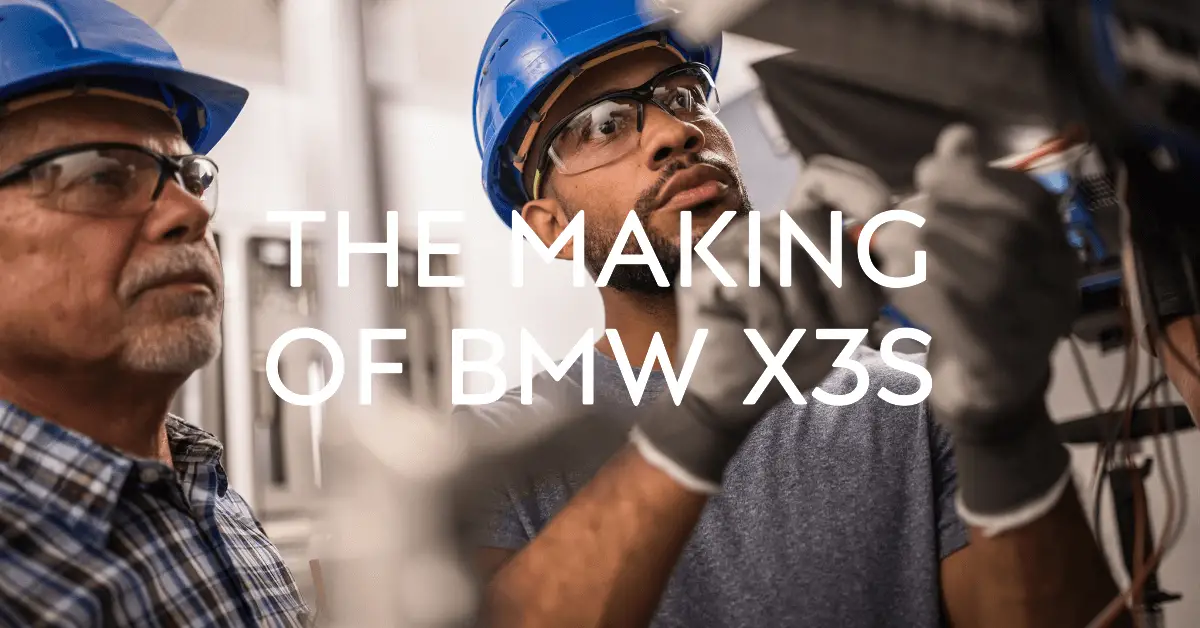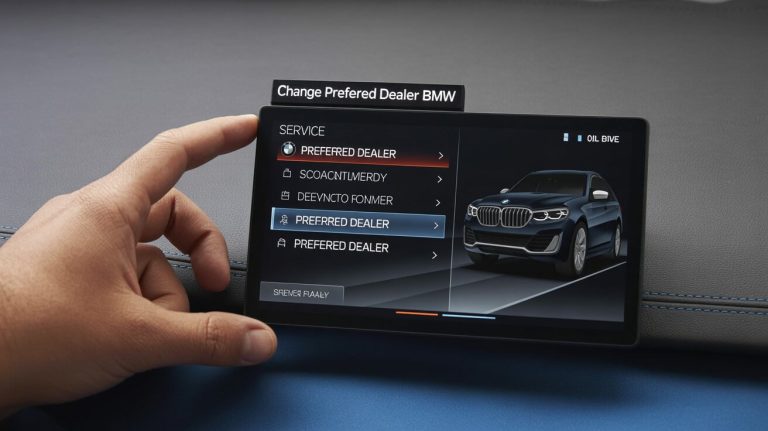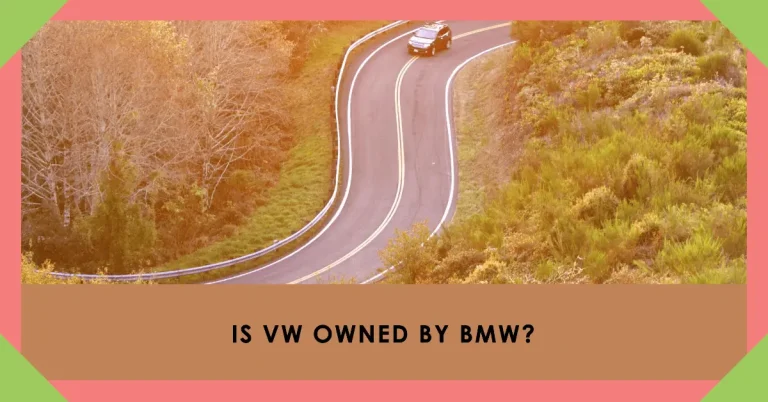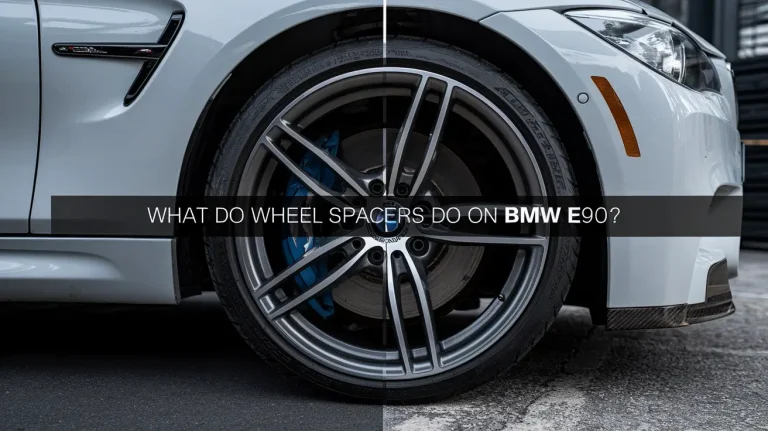Where are BMW Cars Manufactured? A Look at BMW’s Global Production
BMW is recognized around the world as a maker of luxury performance vehicles. But where exactly are BMW cars made?
BMW manufactures its vehicles in several plants strategically located across Germany, China, South Africa, the United States and through partnerships in other countries around the world. This global production network allows BMW to meet demand in key markets internationally.
In this detailed article, we’ll take an in-depth look at BMW’s major manufacturing facilities and global production strategy. Specific topics covered include:
- BMW’s main plant in Munich, Germany
- Additional BMW plants across Germany
- Expanding BMW production in China
- The Rosslyn plant in South Africa
- BMW’s Spartanburg factory in South Carolina
- Contract manufacturing partners globally
By the end, you’ll have a comprehensive understanding of where BMWs are made and why the brand doesn’t rely on a single production location.
BMW’s Headquarters and Main Plant in Munich, Germany
BMW’s headquarters and main production plant are located in Munich, Germany. This facility is where BMW originally got its start producing aircraft engines in 1916.
Today, BMW’s Munich facility remains the heart of the company’s operations. This massive plant produces many of BMW’s most popular luxury models including:
- 3 Series
- 4 Series
- 5 Series
- 6 Series
- 7 Series
- 8 Series
- Z4
- M Performance models
- Electric i models
The Munich plant is an incredible feat of automotive engineering and logistics. It produces over 900 vehicles per day for a total of over 200,000 per year.
How does BMW manage to produce such a huge variety of customized vehicles in Munich? The secret lies in the plant’s advanced flexible production methods.
Rather than a single large conveyor belt assembly line, the Munich facility has multiple smaller assembly lines. These lines can adapt to produce different BMW models in smaller batches. This allows for greater customization and efficiency.
The Munich plant also utilizes cutting-edge Industry 4.0 automation and data analytics. State-of-the-art logistics systems deliver over 70,000 parts daily from on-site suppliers. Modern robots assist with precision tasks like welding and painting.
BMW invests heavily in sustainability at the Munich site as well. The plant runs primarily on hydroelectric power and uses advanced water treatment and recycling systems.
While the Munich factory focuses on BMW’s core luxury models, the company manufactures other vehicles across Germany and internationally as we’ll explore next.
Additional Plants Across Germany
In addition to the main Munich facility, BMW operates multiple other production sites across Germany:
Dingolfing
BMW’s second largest plant is located in Dingolfing, Bavaria. Opened in 1967, this factory now produces around 340,000 vehicles per year.
Dingolfing primarily makes BMW’s upper luxury class models such as the 5 Series, 6 Series, 7 Series, and 8 Series. Variants like the M5 and Alpina B7 high-performance sedans are also produced here.
With over 18,000 employees, Dingolfing is critical for building BMW’s top-tier luxury and performance cars. The plant utilizes innovative manufacturing techniques like a driverless transport system to shuttle parts between suppliers on-site.
Regensburg
The Regensburg plant was opened in 1986 and produces around 350,000 BMW vehicles annually. Models made in Regensburg include:
- 1 Series
- 2 Series
- X1 SUV
- X2 SUV
This plant exemplifies BMW’s flexible production system. It produces rear-wheel drive sedans like the 2 Series alongside front-wheel drive compact cars like the 1 Series.
Advanced logistics and automation allow rapid changeover between models. Custom options like xDrive AWD can also be configured on the assembly line.
Leipzig
BMW opened its Leipzig plant in 2005. Located in eastern Germany, Leipzig produces the BMW 1 Series and 2 Series Gran Coupe compact models.
With a production capacity of 350,000 units per year, Leipzig supplies BMW’s high-volume compact car models to global markets. The plant emphasizes sustainability through a gas-powered combined heat and power system.
Berlin
BMW operates two facilities in Berlin, Germany.
The main Berlin plant produces motorcycles under the BMW Motorrad brand. Models include sport bikes like the S1000RR as well as cross-country and urban mobility scooters.
BMW’s second site is the Berlin-Ludwigsfelde eDrive competence center focused on electric car components. This facility produces the electric motors, battery packs, and other EV drivetrain elements used in BMW’s hybrid and electric vehicles.
Expanding BMW Production in China
China is BMW’s largest single market today. To meet booming demand in China, BMW has rapidly expanded Chinese manufacturing capabilities in recent years.
BMW now operates two major car plants in China through the BMW Brilliance Automotive joint venture:
Shenyang Plants
BMW’s first Chinese production facility opened in Shenyang in 2003. This northeastern China city is the site of three BMW Brilliance plants today:
- Dadong – Original vehicle assembly plant producing 3 and 5 Series plus EVs. Capacity of 450,000 units per year.
- Tiexi – Second assembly plant opened 2012. Produces X1, X3, 5 Series models. Capacity of 450,000 units yearly.
- Dadong Extension – New $1 billion expansion opened 2022. Will produce future electric models.
Together, the three Shenyang plants make BMW one of the largest luxury car producers in China today. The facilities leverage advanced “smart manufacturing” with automation and IoT data to create highly flexible production.
Tiexi Expansion in 2022
To support BMW’s electric vehicle plans, an all-new Tiexi plant will open in Shenyang in 2022. This $1 billion manufacturing site will produce new electric BMW models tailored to Chinese consumers.
The new Tiexi facility will have capacity for up to 650,000 electric cars per year. Along with the Dadong extension, this plant highlights BMW’s commitment to expanding EV production in China.
Rosslyn Plant in South Africa
While Germany and China are core BMW production hubs, the company also manufactures vehicles in select emerging markets. One example is BMW’s plant in Rosslyn, South Africa near Pretoria.
The Rossyln factory began vehicle assembly in 1968. Today it produces over 60,000 BMWs per year for both the domestic South African market and export around Africa.
Models manufactured at the Rosslyn plant include:
- X3 SUV
- 3 Series Sedan
- Selected FWD 2 Series and 1 Series Versions
BMW periodically invests in upgrading the Rosslyn facility. In 2018, the company spent $10 million on modernizations like improved logistics and energy systems.
Localized production in South Africa allows BMW to better serve African markets with optimized supply chains. Vehicles made in Rosslyn also benefit from reduced import duties and taxes.
BMW Factory in Spartanburg, South Carolina
BMW’s largest manufacturing facility globally is surprisingly not located in Germany – it’s in Spartanburg, South Carolina USA.
The Spartanburg plant opened in 1994 and has undergone six major expansions since. Today this BMW factory has annual production capacity of over 450,000 vehicles.
What does BMW’s US plant produce? The Spartanburg facility is the exclusive global production site for BMW X crossover SUV models:
- X3
- X4
- X5
- X6
- X7
Around 70% of the SUVs built in Spartanburg are exported to over 125 countries worldwide. The remainder are sold as domestically produced BMW models in the US.
BMW selected South Carolina for low costs, access to ports for exports, and proximity to key US markets. The company has invested over $11 billion in the Spartanburg facilities to date.
The BMW Spartanburg plant runs on 100% renewable electricity and reuses 96% of waste. It exemplifies how BMW smartly leverages global manufacturing to optimize operations for specific models.
Contract Manufacturing Partners Globally
In addition to its own plants, BMW partners with contract manufacturers in select markets:
Austria – BMW engines and components are made under contract at the Steyr facility operated by Magna Steyr. The site also assembles niche models like the Z4.
India – BMW has a contract manufacturing partnership with TVS Motor Company in India. TVS assembles localized versions of the 3 and 5 Series in Chennai.
Thailand – The BMW plant in Rayong, Thailand produces 3 and 5 series vehicles for Southeast Asian markets in partnership with the Brilliance Auto Group.
Malaysia and Indonesia – Inokom produces BMW X models in Malaysia while DRB-HICOM handles BMW assembly in Indonesia. These partnerships support local market needs.
These contract manufacturer relationships give BMW added flexibility in emerging markets. Local production enables lower pricing and customization for regional consumers.
Where Does BMW Manufacture Concept and Specialty Vehicles?
In addition to its regular production models, BMW creates concept cars and specialty vehicles in Germany to showcase future technologies:
- BMW’s Munich Research and Innovation Center (FIZ) produces concept cars like the Vision M Next and i Vision Circular. This facility develops groundbreaking innovations and designs.
- The BMW Group Classic Workshop in Munich hand manufactures heritage vehicles and limited editions like classic Minis and performance Isettas.
- BMW’s Dingolfing plant handles low volume production of specialty flagship models like the i8 hybrid sports car and rare Alpina B7 variants.
While not high volume, these concept and specialty cars from Munich and Dingolfing represent BMW’s automotive engineering prowess and heritage.
Conclusion: BMW Strategically Manufactures Vehicles Globally
In conclusion, BMW manufactures its luxury performance vehicles across several continents to serve key markets:
- Germany remains BMW’s headquarters and the site of their most extensive luxury vehicle production.
- China now represents BMW’s largest single market. Additional Chinese plants coming online will support BMW’s growth in EVs.
- Regional facilities in South Africa and the USA enable optimized local manufacturing.
- Partners worldwide assemble BMW models to meet specialized emerging market needs.
Next time you see a BMW drive by, it may have rolled off the assembly line in Munich, Spartanburg, Rosslyn, or even one of BMW’s contract manufacturer plants in Asia.
This global yet focused production strategy allows BMW to build customized luxury vehicles closer to regional buyers worldwide. By relying on multiple plants rather than a single central factory, BMW can remain nimble and responsive to shifting demand across global markets.







